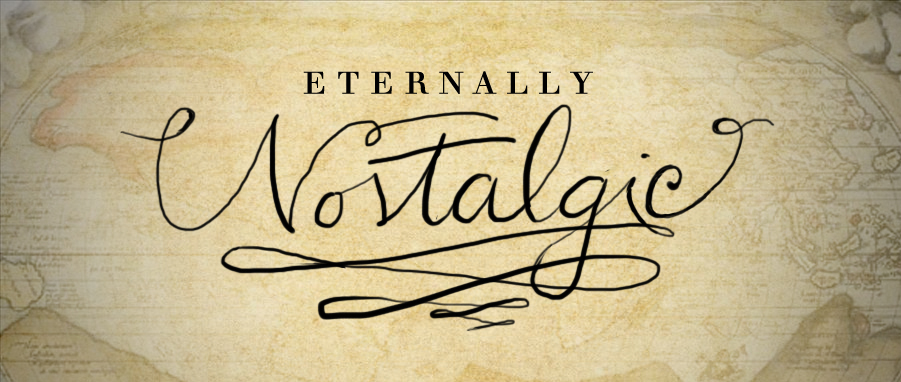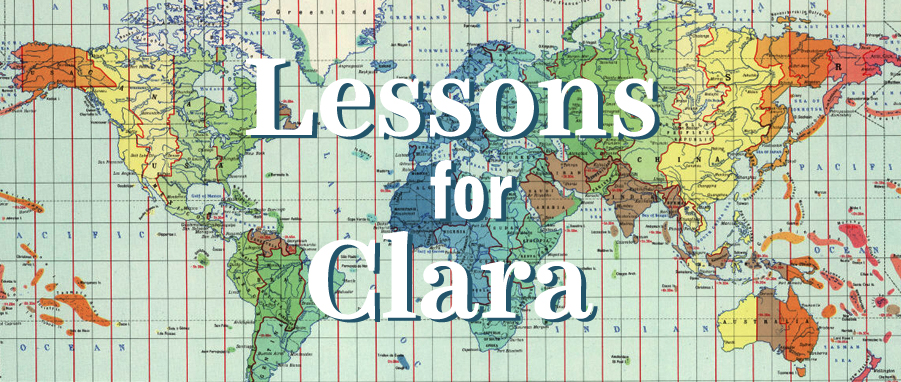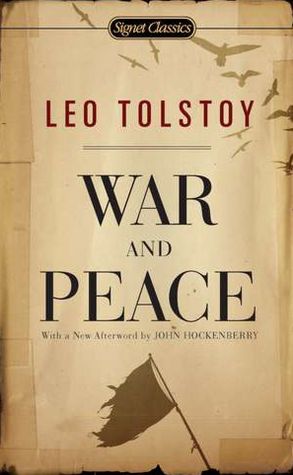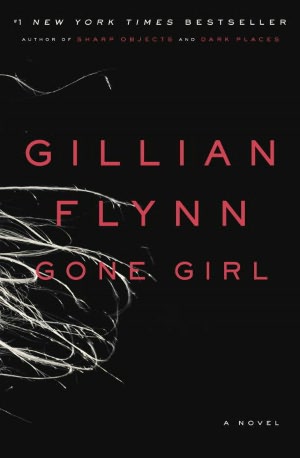By Carrie Allen Tipton For those invested in academic pursuits, August marks time like no other month. It speaks of newness and transition in a way that other folks more readily associate with January and its resolutions, or October and its changing leaves, or March and its budding limbs. August’s gift (or curse) of hyper-awareness of the passage of time blesses (or afflicts) tiny kindergartners no less than aged professors. Whether you are on the making or receiving end of a syllabus or book list in the upcoming educational year, the month delineates for all school-oriented persons the End of Something and the Beginning of Something Else.
As a student, this weird blurry month, neither fully summerish nor yet fully schoolish, meant shopping for clothes, finding color-coded folders, looking for the precise metric specifications of binders stated on the supply list, searching for a new and cooler (is there such a thing?) lunchbox. In the university years there were the added tasks of purchasing football tickets and meal plans. After many years of dutifully carrying out these sorts of instructions, I became a professor and began giving them to others. The road to this position was long and many times I have questioned whether it was, in that extremely charged yet vague term which indexes a host of existential presuppositions, “worth it.” Suffice it to say that it required many years of very long hours of single-minded focus and a willingness to live below the poverty line for the better part of a decade. Fine. It was over now, and I was professoring. In this new capacity, my old friend August meant screening books for readings lists, determining test schedules, building online class modules, anxiously checking electronic enrollment in the hopes that a course wouldn’t be canceled, dodging onerous committee work, applying for travel funding, and plotting out research goals.
For twenty-eight years, then, some version or other of me was essentially still Going To School every fall, and August meant what it always had: a physical and cognitive return to the educational premises. And then all of a sudden this year August stopped meaning anything like it once did. In late spring, I became pregnant with our first child. Let me, as I used to say to my students during lectures when an idea required further explanation, hit the pause button here. If this were an academic article, you would now be treated to a lengthy footnote about how I’d always hoped that if I ever had a child, I could stay home with it until it was school-aged. This was a simple and uncomplicated desire that could afford to remain simple and uncomplicated as long as it was theoretical. While there was no viable life-partner in the picture, such a decision was lodged (like so many of my academic ruminations) in the realm of abstract thought, and so it stayed for all of my adult life until I met my future husband two years ago, a mere year into my professorial career. And based on my longstanding desire, prior to our marriage, we agreed that I would stay home with the wee ones if wee ones ever materialized, at least in their early years. I would try freelance writing, editing, and perhaps some online teaching.
It would make a lot of sense, we figured, since I was quite unhappy as a professor and earned proportionately little money for my trouble. Pace Anne-Marie Slaughter, whose insightful article “Why Women Still Can’t Have It All” appeared in the July/August 2012 issue of The Atlantic, but the thought of trying to have it all has always seemed to me quite exhausting. I just wanted some of it, and the part of it that I wanted changed as I walked through different seasons of life. So the decision was in place long before the baby ever was. It was still abstract and simple and uncomplicated, until the day in early April when two drugstore tests set the pre-arranged plan into motion. As I began the process of disentangling myself from a tenure-track job at my university, I felt liberated from unfulfilling employment, eager to spend the fall months prior to the baby’s arrival immersed in my beloved writing, and proud for being willing to run screaming from the ivory tower after three years of soul-searching that showed it to be an ill fit for me. I still do feel those things, and harbor no golden nostalgia for the frustrations of the career path I left. But what I do harbor is a giant question mark about who I am now, especially while my daughter is still an “inside baby,” and who I will be in the remaining months of her gestation, and who I will become as she emerges, and how we will become something together. Abstraction, simplicity, and lack of complication are rapidly eroding as I find myself in the midst of a new kind of August, and I have had to learn all over again what it means this year.
So far it has meant knowing, for the first time in my life, the months spanned by peach season, and that early August represented the final window of opportunity for capitalizing on the soft round spheres. I made a peach ricotta tart and did not make a syllabus. It has meant starting yoga classes, in the middle of the day, to help with my achy joints and to communicate with my girlie, my changing positions a sort of Morse code telegraphing her to be strong and peaceful and that I will try to be strong and peaceful for her. I sat in a roomful of people with legs crossed on rubber mats and did not sit in a roomful of people in pre-semester meetings. I measured for and ordered drapes and marched through Ikea looking for mounting hardware. I put up sheer taupe curtains in our living room and did not put books on an office bookshelf. I wrote and wrote and wrote and did not aim to produce a single article intended for a peer-reviewed journal. I am not sad, but August is feeling weird.
An entire book has been written about the difficulties and joys of either combining motherhood and academia or leaving the latter for the former, so I should have known that August wouldn’t sit right this time around. Reading Mama PhD: Women Write About Motherhood and Academic Life assured me that I wasn’t crazy for feeling dazed disorientation as I walked out of the halls of academia into the blazing sunlight of other paths. Of course it made sense that I was losing my emotional footing in the bright light of August, which every other year meant that I should be walking into the university instead of away from it. I still can’t see quite where I am headed and am only accepting, day by day, what this August means. To borrow the phrase of an incomparably greater wordsmith, T.S. Eliot, “in my end is my beginning.” August has always at its heart represented new beginnings for me, and although something large and weighty has come to an end, many other things have now begun. And when I think of this, I think that perhaps, after all, this August is not so very unlike the ones that have come before.


























 I recently picked up The Big House: A Century in the Life of an American Summer Home by George Howe Colt. It's a story of a summer house, like this one, and the family that inhabits it. I just started the book, but I love the way that the house and the land are intertwined with the family and its history. The author's memories of his grandparents are similar to the memories that Jordy has, and likely similar to the memories that Emi will have as she grows up. It was handed to me as soon as I arrived, looking for something to read. I just finished 1Q84, and needed something to thumb through at the beach in-between discussions of the latest article in People or Frank Rich's column that morning. Reading is an integral weft in the social fabric of the ladies at camp. We love books, we love to read, and we love to talk about what we're reading. Here's a sample of what's made an appearance at the beach this week. If some of the reviews seem short, it's because I made people tell me what they were reading as they were running through the house on their way to the beach, the grocery store, or to watch the Olympics (the only time, save for the U.S. Open, that the television is allowed on).
I recently picked up The Big House: A Century in the Life of an American Summer Home by George Howe Colt. It's a story of a summer house, like this one, and the family that inhabits it. I just started the book, but I love the way that the house and the land are intertwined with the family and its history. The author's memories of his grandparents are similar to the memories that Jordy has, and likely similar to the memories that Emi will have as she grows up. It was handed to me as soon as I arrived, looking for something to read. I just finished 1Q84, and needed something to thumb through at the beach in-between discussions of the latest article in People or Frank Rich's column that morning. Reading is an integral weft in the social fabric of the ladies at camp. We love books, we love to read, and we love to talk about what we're reading. Here's a sample of what's made an appearance at the beach this week. If some of the reviews seem short, it's because I made people tell me what they were reading as they were running through the house on their way to the beach, the grocery store, or to watch the Olympics (the only time, save for the U.S. Open, that the television is allowed on). Tender at the Bone, Ruth Reichel
"I love it. It's a memoir of her childhood with a very crazy mother and how food became so important in her life. She comes from a really crazy family, and she just by happenstance gets connected to a family that loves food, and she discovers that when the world isn't working well, you can make a good meal and all is suddenly right with the world."
Tender at the Bone, Ruth Reichel
"I love it. It's a memoir of her childhood with a very crazy mother and how food became so important in her life. She comes from a really crazy family, and she just by happenstance gets connected to a family that loves food, and she discovers that when the world isn't working well, you can make a good meal and all is suddenly right with the world." War and Peace, Leo Tolstoy
"It's a book that I never in a million years thought I would read (even though I'm an English teacher), but my book club decided they would do it. I am fully immersed in it. The first 100 or so pages were difficult just because of the many characters and getting the names straight (and feeling intimidated by the fact that it's War and Peace). But once you get over that, Tolstoy is so fluid and so all-encompassing and he understands human nature and the big picture so well, but he includes detail to make it seem here and now. The writing is a narrative, so you read it for a story, but you also get a sense of the history and the philosophical and ethical issues that people thought about at that time in Russia (and even now): the nobility and the peasants; why people go to war. You're also brought back by the everydayness of the characters that he creates, and they become real. It's a great read. We were supposed to read 200 pages and meet and read another 200 pages, but I've almost finished it because I've become so involved with it."
War and Peace, Leo Tolstoy
"It's a book that I never in a million years thought I would read (even though I'm an English teacher), but my book club decided they would do it. I am fully immersed in it. The first 100 or so pages were difficult just because of the many characters and getting the names straight (and feeling intimidated by the fact that it's War and Peace). But once you get over that, Tolstoy is so fluid and so all-encompassing and he understands human nature and the big picture so well, but he includes detail to make it seem here and now. The writing is a narrative, so you read it for a story, but you also get a sense of the history and the philosophical and ethical issues that people thought about at that time in Russia (and even now): the nobility and the peasants; why people go to war. You're also brought back by the everydayness of the characters that he creates, and they become real. It's a great read. We were supposed to read 200 pages and meet and read another 200 pages, but I've almost finished it because I've become so involved with it." "I just finished Gone Girl, by Gillian Flynn. I loved it up until the very end, but I couldn't put it down---I was sneaking reads during work. It was a page turner, and you didn't know what was happening. It was a good mystery, and how you felt about the characters changed throughout the book at different points. I read The Art of Racing in the Rain at the beginning of the summer. It's written from the point of view of a dog---[she looks at me raising my eyebrows and goes, "I know, but it's really good."] the dog is this smart being, but because of how he was created (with a floppy tongue, no thumbs)---he's stuck with his thoughts and knowledge of things but no way to express himself. I just started reading Sharp Objects."
"I just finished Gone Girl, by Gillian Flynn. I loved it up until the very end, but I couldn't put it down---I was sneaking reads during work. It was a page turner, and you didn't know what was happening. It was a good mystery, and how you felt about the characters changed throughout the book at different points. I read The Art of Racing in the Rain at the beginning of the summer. It's written from the point of view of a dog---[she looks at me raising my eyebrows and goes, "I know, but it's really good."] the dog is this smart being, but because of how he was created (with a floppy tongue, no thumbs)---he's stuck with his thoughts and knowledge of things but no way to express himself. I just started reading Sharp Objects." The Fingertips of Duncan Dorfman, Meg Wolitzer
"It's about this dude who plays Scrabble, and he has a power in his fingers to read things with his fingertips. They're in a tournament in Florida. I got it for my birthday from Grandma and Grandpa. It was on the
The Fingertips of Duncan Dorfman, Meg Wolitzer
"It's about this dude who plays Scrabble, and he has a power in his fingers to read things with his fingertips. They're in a tournament in Florida. I got it for my birthday from Grandma and Grandpa. It was on the  The Son of Neptune, Rick Riordan
"It's the second in a series the Heros of Olympus, which is the sequel series to the Percy Jackson series. It's about a boy, Percy Jackson, who's memory is taken by Hera/Juno, and he loses 8 months of his life with the wolf Lupa and her pack, learning to fight. Then he leaves the wolves and journeys to the Roman demigod camp and he's originally from the Greek demigod camp. I read the first one in the series and it was about a boy, Jason, who gets the same thing but goes from the Roman camp to the Greek camp, and he has to unite the camps before the prophesy can come true. It's so good, I've read it seven times."
The Son of Neptune, Rick Riordan
"It's the second in a series the Heros of Olympus, which is the sequel series to the Percy Jackson series. It's about a boy, Percy Jackson, who's memory is taken by Hera/Juno, and he loses 8 months of his life with the wolf Lupa and her pack, learning to fight. Then he leaves the wolves and journeys to the Roman demigod camp and he's originally from the Greek demigod camp. I read the first one in the series and it was about a boy, Jason, who gets the same thing but goes from the Roman camp to the Greek camp, and he has to unite the camps before the prophesy can come true. It's so good, I've read it seven times."
















